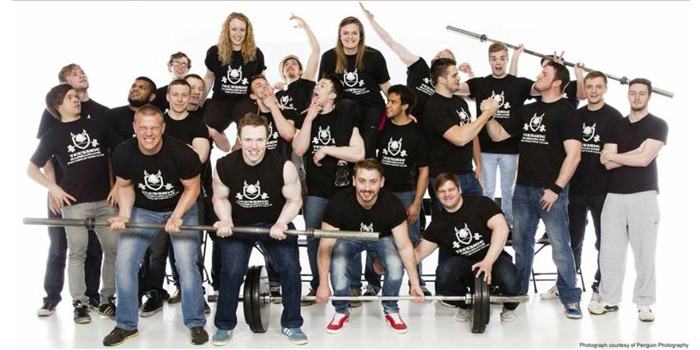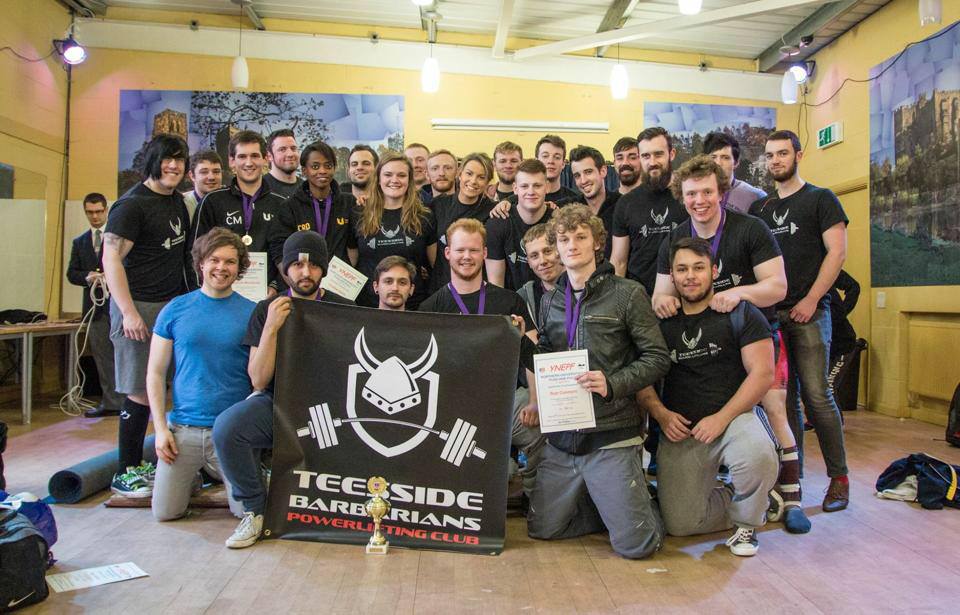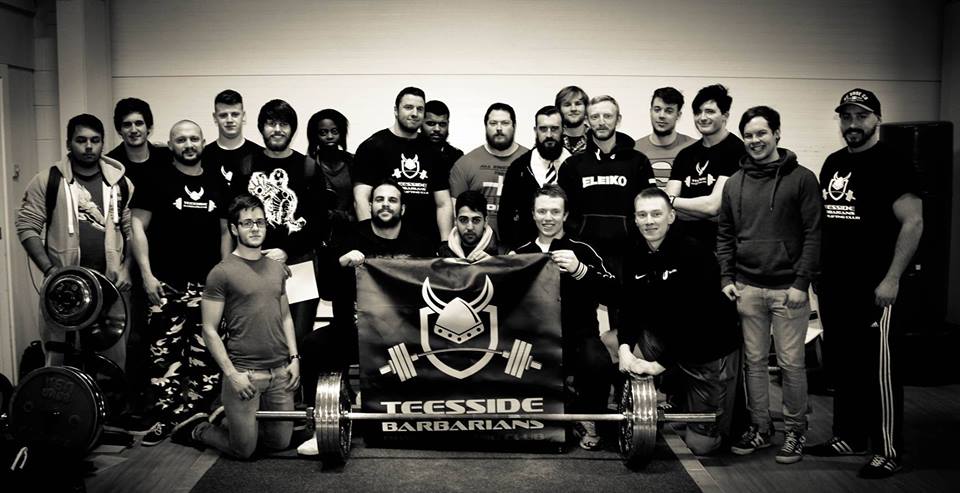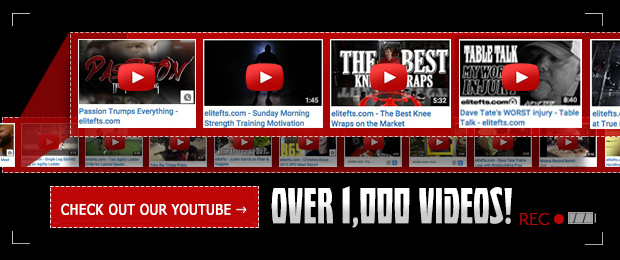
This article is based on my own experience of starting the Teesside Barbarians Powerlifting Club in December 2013 at Teesside University. Anyone can set one up; it's easy if you have the right attitude and support in place. In a short space of time, we have achieved so much. We have 50 members, seven Sports Award Nominations, Sportsman of the Year, 14 Gold, nine Silver and 10 Bronze medals, and have finally been crowned Northern University Champions.
Why I Started the Club
It's important to understand why you want to start a club. Set specific goals and use those to drive all of the decisions you make when developing the club. There were six main reasons I wanted to start our club:
- I wanted to train with a group of people regardless of experience and ability. Everyone and anyone is always welcome.
- Promote the Sport of Powerlifting, as it is an unreal sport.
- Be a better coach with hands-on experience helping others. I want to be a strength and conditioning coach, so the best way to do this is by practicing these skills.
- Apply what I learn from my Sports Science Degree to real life scenarios. What good is knowledge if you cannot apply it?
- I wanted to be a better lifter.
- Most importantly, I wanted to have fun with likeminded individuals and be able to train hard and eat un-godly amounts of food without judgement.
By knowing these reasons ahead of time, I was able to form a stronger plan for success.
Planning for the Club
I was excited and nervous at the same time. Fortunately, I had a lot of good friends around me to give me support and ideas to the table. We had the support of the Student’s Union which has always guided us regarding anything.
We have a development plan which we use each year and update it on a regular basis. It is a go-to guide and what the key individuals in the club should be following. Goals and aims should be set out at start of year with all members present so everyone can agree on what they want to do. This can be what competitions to lift at, what they want to learn and do.
I was told by a lecturer who used to be part of a powerlifting club at my uni many years ago, “you will find it difficult to set it up as a lot of people will make it very hard for you to do well.” Damn, he was right. You will have ups and downs, I will guarantee that for you. There have been so many people where I am at, who have wanted my club to disappear. They have made it their sole objective to prevent myself and others form having success. Why they do it? I have no idea, but it has been rewarding when they fall short and I just smile at them.
MORE: How to Start a Collegiate Powerlifting Team
Best example of this was at the recent Teesside University Sports Awards where one individual was so upset that a “powerlifter” won an award. Pricks just seem to ooze out of the walls when you or your friends achieve success. I hope in whatever club you are part of, this never happens. Unfortunately, we live with pricks.
As a friend once told me, “have the haters work for you."

Things You'll Need
- A committee made up of Chairman/Chairwomen, Treasurer and Secretary. This is the beginning of the structure for your club. Who is the leader (who makes the decisions), secretary (the point of contact) and treasurer (who manages the finances). All three positions help each other in club matters.
- Head Coach and Assistant Coaches. They coach all the members, provide them with training programmes, lead the sessions, warm-ups/cool-downs, nutrition plans etc. They are in place to make sure everyone reaches their competition goals.
- Someone who understands how to run a business or has experience being part of a business. I think it’s always important to have a member of your club’s committee with a business mind. They will have a better understanding on how to market the club and be able to make a profitable return so the club can invest in better equipment for example.
- Graphics designer for club logo and equipment. If you have a friend who is into drawing or product design, ask them to help design a club logo for the gym, on a banner, clothing etc. Maybe in return, offer free membership or a few sessions if you are really happy with their service.
- Physiotherapist and/or Sport’s Therapist. I am fortunate to have my club at the uni where there is a large base of therapists/physios. The sports clinic only costs us £1 per session for massages and rehab work. What I would say is get a link with a local physio/sports therapist and have your club members only go to him/her. The physio/therapist could offer discounted rates due to increase in clients and help advertise your club.
- Public Relations Officer (PRO) or simply someone to admin social media. You will need someone to do all the posts, answer Facebook questions, direct people to towards the right information, post about any club developments, and engage the community.
- Social Secretary. This person will be in charge of nights out, after competition meals, etc.
- Monthly meetings to see how the club is developing. You need to get everyone together each month in the same room to make sure targets are being hit. This will also help members stay social with one another and discuss how to better reach your goals.
- A yearly strategic development plan made up of short, medium and long term goals. If you email me, I have a blank template for this which I can send on to you. This will give you a sample strategic development plan that allows you to see what needs to be done in the immediate future, what needs to be started for several months down the line, and what your club hopes to accomplish in the next year.
- The club’s aim and ethos. What are your club’s aims and ethos? What does it represent and stand for? Does it have an identity? For a business, this would be the brand that customers become familiar with.
- Target Audience. Are you just targeting powerlifting? All sports? Beginner, intermediate, elite lifters? My club is open to all sports of all levels and to those who just want to keep fit.
- Local Support. Get support from friends, family, local press and council to promote your club and you to put something back into the community. The more familiar the community is with your club, the more support you will receive.
- Members who are regional/national referees. Sticking with the sport of powerlifting, if you want all your members to be clued up on the rules, have some of them become national refs. This will not only help the members who become refs, but will also benefit your entire club.
- A member or members who are part of regional/national development. This allows your club to have a say in events that will affect it on a regional and national scale. Your club is represented by your region, so why not have members in the regional committee/set-up which will voice your opinions? This will increase your visibility and garner more support.
- Good training facility (ideally your own place if possible). This means you can train how you want to train not how a gym owner wants you to train. Having your own place means you can design it your own way and have equipment you really need.
- If you are a university student, have the support of your Student’s Union. Don’t ask the university for help, as they will only want to make a profit at the expense of your success. End of the day, they are a business and don’t care for individuals or small minority groups. A student’s union backs students and will support them.
- Fundraisers. Do car washes, bag packing, charity events (deadlift for reps), anything, to help raise awareness for a local charity to promote your club and raise a small bit of money towards the club.
- Continuous education. All coaches and members should be continuously striving to be better. This means always learning new ways to maximize performance. Coaches need coaching as much as athletes do.
- You don’t need that many people. All you need is a group of passionate friends who are as crazy as you.
MORE: You've Founded Your Powerlifting Team...Now What?
What I have accomplished from doing all of this?
I am a better coach and lifter and I have a wider friends circle. I am Student Development Officer for all of YNEPF (Yorkshire North East Powerlifting Federation) and now Student Development Officer for IPF (Irish Powerlifting Federation) Powerlifting. I have a bigger impact on student experience at my university, which is great, as I can voice the opinions of many and help individuals. More importantly, I just enjoy what I do — helping others, making people stronger, seeing friends empowering themselves to be better at life, fitness, education, and work.
I hope you find this helpful in setting up your own club.
My name is Andrew Richardson and I'm 21 years old from Ireland. I'm in my final year of Applied Sport Science at Teesside Univeristy and the current head coach and chairman of the Teesside Barbarians Powerlifting Club.











Thank you for this article. I'm trying to set up a powerlifting club at Liverpool John Moores Uni right now. How would I go about emailing you for the yearly plan template?
Thanks,
Takiyah